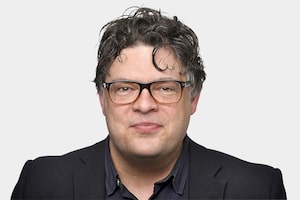Finance Minister Bill Morneau is squeezed between carrying through on some costly election promises, new data showing continued weakness of the economy and the need to display his competence and commitment to fiscal responsibility.MARK BLINCH/Reuters
Provinces are trying to push the federal government's $36-billion health-transfer program onto the agenda of this week's finance ministers' meeting in Ottawa, with some calling for a new formula that shifts more cash to provinces with older populations.
However, the host of the meeting, federal Finance Minister Bill Morneau, said health transfers are not a focus of this particular gathering and that he wants to talk about the economy and pension reform.
The formula for federal health transfers changed last year so they are distributed on a per-capita basis, a change that led to a major increase for Alberta at the expense of other provinces.
Quebec Finance Minister Carlos Leitao says he and some of his provincial colleagues will work to have that formula change again in order to reflect the demographics of each province.
"The health-care transfers should not be simply on a per-capita basis but should include a formula, a ratio, indicating that [citizens] 65 years and over should get a different weight than those under 65," he told The Globe and Mail. The minister said there is significant support for the idea.
"A lot of provinces, including Ontario, are willing to go in that direction. West of Ontario, they're perhaps a little less enthusiastic. But those are things that we can negotiate," he said.
Mr. Morneau played host to his provincial and territorial counterparts for dinner Sunday evening and the ministers will meet again Monday. The official agenda includes issues such as the state of the economy and potential reforms of the Canada Pension Plan.
The federal Finance Minister said Sunday that federal promises to renew Canada's health-transfer system will be led by Health Minister Jane Philpott and will not be central to these meetings. However, Finance Canada officials have long studied the pros and cons of various formulas for distributing money for health.
"To the extent that we have a discussion about equalization or health transfers, that will be part of an overall discussion about how we can collaborate to improve the economy of the country," Mr. Morneau said.
B.C. Finance Minister Mike de Jong said he expects a broad discussion on the future of transfers like health and equalization. He said he specifically wants to discuss the "methodology" related to how federal health spending is calculated.
"My first priority is around the health transfer," he said. "When health spending represents for most of the ministers gathering here … almost half of their budgets, it's difficult to divorce the health expenditure and the health budget from what finance ministers do."
The outcome of such discussions is of huge importance to provinces. Health spending as a percentage of overall provincial spending ranged from a low of 30 per cent in Quebec to a high of 44 per cent in Manitoba, according to 2013 estimates from the Canadian Institute for Health Information.
Since 2004, Ottawa has increased the size of the health transfer by six per cent annually. However, the varying formulas mean individual provinces often receive less than a six-per-cent annual increase.
Prior to the most recent formula change, health transfers included an element of equalization. But the Conservatives concluded that it would be more transparent to remove that aspect of the CHT and deal with interprovincial discrepancies purely through the equalization program.
The latest details of the $70.9-billion in total federal transfers – released Sunday ahead of the dinner meeting – illustrate the stakes involved.
Before the switch to per-capita funding in 2014-15, Alberta received $2.5-billion through the Canada Health Transfer. The formula change increased that amount to $3.7-billion the next year and the new figures show Alberta will receive $4.2-billion in 2016-17. That represents a 69-per-cent increase to the transfer since the change was made.
In contrast, Quebec's health transfer was $7.2-billion in 2013-14 and will be $8.3-billion in 2016-17, a 15-per-cent increase over the same period.
The Parliamentary Budget Officer has said that Ottawa currently contributes about 22 per cent of the total health-care costs faced by provinces. The PBO has also said this percentage is on track to decline over time.
Health, however, is just one of three major transfer programs. Quebec does far better than any other province via the equalization transfer. It will receive $10-billion in equalization payments in the coming fiscal year. The second largest equalization transfer will go to Ontario at $2.3-billion, which is just slightly less than the $2.36-billion Ontario received this fiscal year.
British Columbia, Alberta and Saskatchewan do not receive anything under the equalization program, which is meant to allow less-prosperous provincial governments to provide reasonably comparable public services to those in other provinces.
Economic weakness in energy-producing provinces is expected to impact equalization over time, particularly for Ontario. The formula is based on a three-year moving average, which likely muted the impact of economic changes over the past year connected to lower commodity prices.
The third transfer is called the Canada Social Transfer. It is worth $13.4-billion nationally and is divided among all provinces on a per capita basis. The total amount grows by three per cent a year.
 Bill Curry
Bill Curry Nicolas Van Praet
Nicolas Van Praet